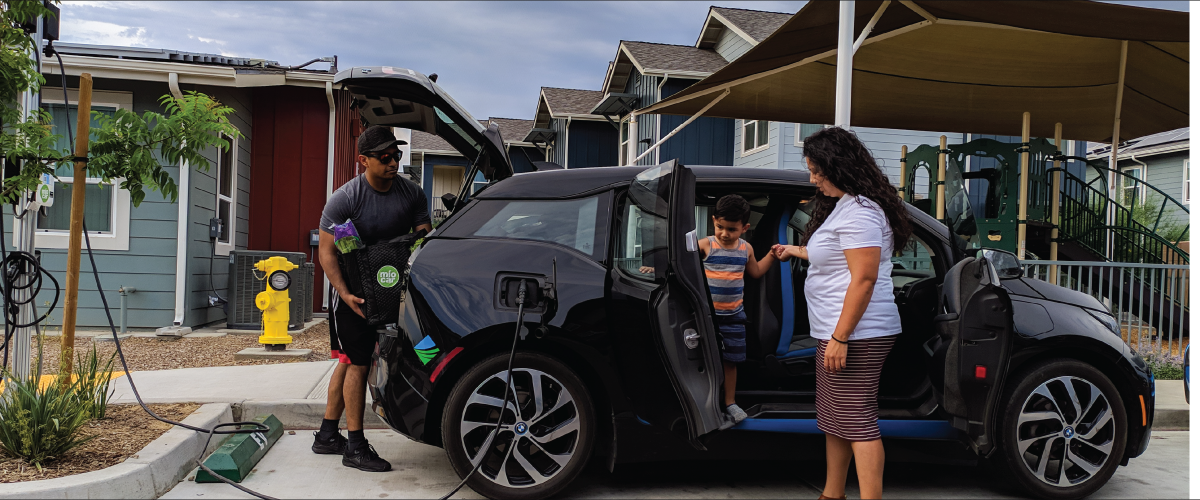Considering strengths and limits of state’s approach, policy experts at Center for Progressive Reform offer far-reaching recommendations and a “radical alternative”
WASHINGTON, D.C. — Today, environmental law and policy experts at the Center for Progressive Reform released an in-depth analysis of California’s climate and clean energy funding programs for the state’s historically marginalized and underserved communities.
The set of reports and fact sheets, Funding a Clean and Equitable Energy Transition: Lessons from California, follows the recent publication of the Center’s California Climate Justice Index, which details the laws, executive orders, agencies, funding processes, and funding programs that shape climate policy for the nation’s most populous state.
“We cannot achieve the clean energy transition we all need without substantial support for under-resourced households and communities,” said Member Scholar Alice Kaswan, a professor at the University of San Francisco School of Law and one of the report set’s authors. “Arcane as it may seem, it’s crucial to understand how the state’s numerous climate funding programs and policies operate — and how they can be improved to advance climate justice and equity.”
The new seven-part report identifies the many sources — including federal dollars, cap-and-trade revenue, state tax revenue, and utility ratepayers — that fund climate justice programs and dissects how state agencies plan and design the programs that ultimately disburse funds across various sectors, agencies, individuals, businesses, and community groups.
Kaswan notes, “California’s agencies have led the nation by providing billions of dollars in climate and clean energy funding to individuals and communities in need and have developed innovative mechanisms to foster transformative change.”
Still, the report demonstrates that more needs to be done, especially when it comes to overarching strategic planning and coordination. “California is overdue for a comprehensive, strategic review of its existing climate and clean energy programs,” Kaswan said. “The state also needs to develop a more connected and coherent funding strategy, and it’s going to take legislative and agency action to get that done.”
The set of reports highlights systemic barriers that can impair efforts to extend the benefits of the clean energy transition to those in need, as well as evaluating the role communities and advocates play in program design and implementation.
“Climate justice benefits us all, but we won’t get there if we don’t center the experiences and insights of the people most impacted: communities of color and low-wealth communities,” said Catalina Gonzalez, a climate justice policy analyst at the Center and the report set’s co-author. “Our legacy of redlining and structural discrimination means that these communities bear the brunt of climate change and pollution from fossil fuels.”
Gonzalez added, “Community leaders and advocates have been deeply engaged in developing and improving climate funding programs over time, but they are still not perfect. The complexity of California’s funding programs creates significant hurdles in communities’ efforts to meet their cross-cutting needs, and traditional grant parameters are often too expensive and burdensome for severely under-resourced communities.”
Gonzalez and Kaswan surveyed California’s multi-sector, multi-agency landscape of climate and clean energy funding programs and offered numerous recommendations to improve existing systems. Their recommendations include:
- Establishing a central authority that has the capacity to assess the “big picture”;
- Centering community input as early in the planning process as possible; and
- Approaching climate and clean energy programming holistically instead of sending people to multiple, separate agencies to meet their needs.
Kaswan and Gonzalez end by proposing a “radical alternative” for policymakers and community leaders in the state and beyond. To avoid the roadblocks associated with competitive grants, a process that often leaves out the most under-resourced communities, the state should identify these communities and provide block grants to help them plan and implement a holistic clean energy transition. Resources devoted to grant review could instead be devoted to providing communities with the technical assistance they need.
“In many ways, California’s programs represent the closest thing we currently have to a gold standard for climate justice investments in the United States,” Gonzalez said. “People who care about climate justice and clean energy policy are looking to California to get a sense of what works. To help them do that, we dug deep to show which programs and policies deserve to be reproduced by other states and what could and should be improved.”
The full set of reports and fact sheets is available at https://progressivereform.org/california-climate-justice/funding-clean-equitable-energy-transition-lessons-ca-rpthq/.
# # # # #
Banner image courtesy of Míocar.

